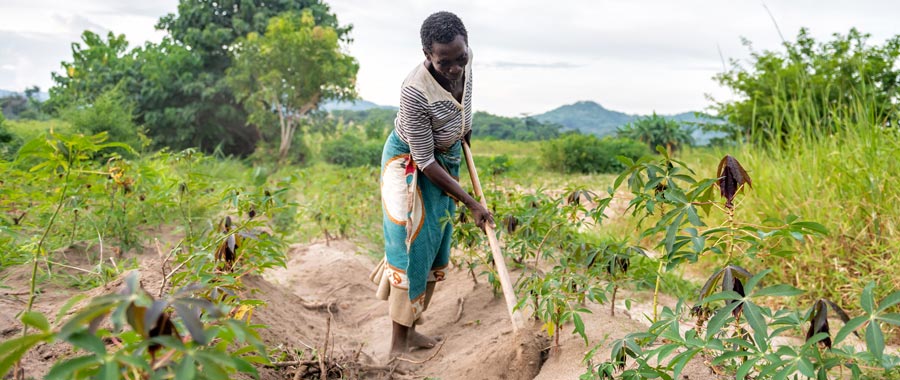The philosophical underpinnings of the Bahá’í Faith underscore the significance of agriculture, particularly emphasizing the role of the farmer as a pivotal agent in human society. This exposition aims to unravel the intricate layers of Bahá’í teachings regarding agriculture, specifically the farmer’s foundational contributions to civilization, and the broader implications of these principles in fostering unity, sustainability, and spiritual growth.
To initiate this discourse, it is essential to recognize the socio-economic landscape influenced by agriculture. The farmer, as the first active agent in human society, stands at the confluence of environmental stewardship and community sustenance. The very act of farming is an endeavor that transcends mere cultivation; it embodies the fostering of life, nourishment of communities, and the formulation of social bonds. In this regard, the farmer is not merely a producer of food but a crucial linchpin in the fabric of societal structure.
Within the Bahá’í framework, the significance of the farmer is further elucidated through the lens of individual empowerment and collective responsibility. The teachings advocate for agricultural development as a means to enhance not only the economic well-being of individuals but also the holistic advancement of society. This is illustrated through the promotion of sustainable agricultural practices that respect the natural environment, thereby ensuring that both the land and the community prosper symbiotically.
A key teaching of the Bahá’í Faith is the principle of unity. The farmer, in cultivating the earth, also cultivates the spirit of cooperation and interconnectedness among diverse cultures and communities. By working the land together, farmers of varying backgrounds are afforded the opportunity to engage in collaborative efforts that transcend socioeconomic barriers. This interaction fosters a spirit of solidarity that is paramount in the Bahá’í concept of world unity. The collaborative nature of farming reinforces the idea that humanity is one single entity with shared aspirations and responsibilities.
The Bahá’í teachings emphasize the importance of education and the empowerment of farmers through knowledge. Agricultural education is considered vital for the promotion of innovative practices and the adoption of sustainable methods that not only enhance productivity but also protect ecological integrity. Such initiatives often include the dissemination of knowledge on organic farming techniques, crop rotation, and water conservation methods. Education enables farmers to become custodians of the land, deepening their commitment to sustainable farming and thus securing the future of their communities.
Moreover, the symbiotic relationship between farming and spirituality cannot be overstated. The act of tending to the earth can serve as a meditative practice, fostering a profound connection with the Creator and the natural world. The Bahá’í teachings encourage individuals to view their labor as a form of worship, wherein the act of planting and harvesting becomes a spiritual endeavor. This perspective imbues the work of the farmer with a transcendent significance that elevates it beyond daily toil to become part of a divine purpose.
In contemporary discourse, the plight of farmers in the face of globalization, climate change, and economic disparities is a pressing issue. Bahá’í teachings advocate for justice and equity in agricultural systems, highlighting the necessity for fair trade practices and the eradication of poverty. The empowerment of farmers, particularly marginalized communities, is paramount in achieving these aims. This empowerment is intricately connected to the principles of consultation, a core tenet of the Bahá’í Faith, which emphasizes participatory decision-making that includes the voices of those most affected by agricultural policies.
Consequently, the farmer’s role extends beyond individual responsibility; it encompasses a broader obligation to advocate for systemic change. Sustainable agricultural practices and equitable trade policies can serve not only local communities but can also contribute to global efforts in combating food insecurity and fostering economic resilience. As stewards of the land, farmers are in a unique position to drive these changes, thereby embodying the Bahá’í principle of service to humanity.
Additionally, the teachings highlight the notion of the ‘noble character’ of the farmer. This term transcends mere performance of agricultural duties; it encompasses the virtues of diligence, patience, and humility. These attributes are essential in nurturing both the soil and the community. The farmer, through their daily ardor, becomes a model for sound ethical practices, inspiring others to engage with the land in a respectful and responsible manner.
In conclusion, the Bahá’í teachings on agriculture and the farmer as the first active agent in human society epitomize a harmonious integration of spiritual, social, and economic dimensions. Farmers embody a vital role within the fabric of society, acting as custodians of the land and facilitators of community well-being. Through their labor, they weave together diverse threads of humanity, demonstrating that the act of farming is not only essential for sustenance but is also a path toward fulfillment, unity, and spiritual enlightenment. As we reflect on this profound legacy, we are reminded of the sacred responsibility we all share in cultivating a world that honors the interconnectedness of life.
